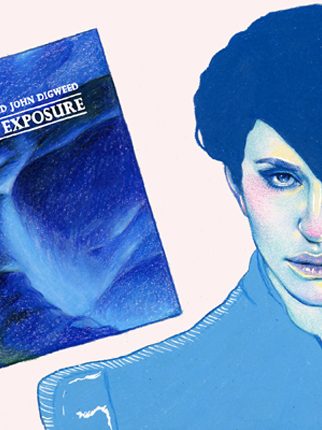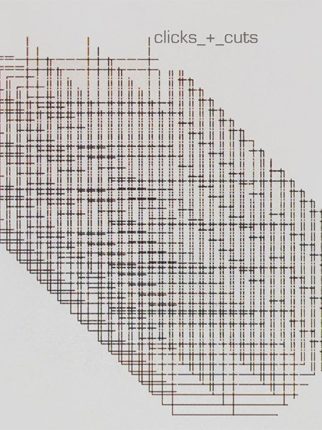Z Trip and Graham Funke’s Classic Album Rewind
Two of today’s most accomplished selectors review some of 1995’s biggest albums and the impact they had on dance music history. First up, Z-Trip…

The Chemical Brothers – Exit Planet Dust (Freestyle Dust/Astralwerks)

1995 was an interesting year, because you had all these things happening at one time. It was a movement: Mo’ Wax, Kruder & Dorfmeister, acid jazz, DJ Kicks, Nightmares on Wax. Not hip-hop or dudes rapping, but big beats that you could use to get people’s attention and bridge up to faster tempos. This record was a huge piece of that. “Song to the Siren,” the track that starts slow and speeds up—I’d always use that as a transition record. But then you’ve got all these tunes—like “One Too Many Mornings” or “Leave Home”—that were beat-heavy things with acid lines, synth lines, and all these sonic soundscapes that I’d scratch a Method Man a cappella over.
This album was your gateway drug to techno and big beat. And you didn’t just go out and buy Exit Planet Dust. You’d buy everything they were doing around that time, because they were like LEGO pieces. You had to pay attention to the body of work. They would do shit on independent labels; they’d do remixes on different labels. They also had other people doing remixes of their work, so you got the cross-references. I remember being exposed to someone else like the Crystal Method or Überzone or the Prodigy, and it made me want to check them out. —Z Trip
Leftfield – Leftism (Hard Hands/Columbia)
 There’s a remix of “Original” that I still use to this day. It had this acid line that they just kept speeding up. Man, I still beat the shit out of that track. “Inspection Check One” was a huge record; then you had “Open Up” with Johnny Lydon. Who was doing that shit back then? This is the thing I loved. You’d buy the record, and you’d get your downtempo fix and your uptempo fix. I’d be able to play some tracks in my hip-hop sets, and I’d be able to play some tracks at the rave at two or three in the morning. And this record borrowed so heavily from reggae. I could go into anything that had ska or drum & bass; then the really atmospheric stuff on “Afro-Left” or “Melt” was just so wide open, you could use those as segues to get in and out of tracks.
There’s a remix of “Original” that I still use to this day. It had this acid line that they just kept speeding up. Man, I still beat the shit out of that track. “Inspection Check One” was a huge record; then you had “Open Up” with Johnny Lydon. Who was doing that shit back then? This is the thing I loved. You’d buy the record, and you’d get your downtempo fix and your uptempo fix. I’d be able to play some tracks in my hip-hop sets, and I’d be able to play some tracks at the rave at two or three in the morning. And this record borrowed so heavily from reggae. I could go into anything that had ska or drum & bass; then the really atmospheric stuff on “Afro-Left” or “Melt” was just so wide open, you could use those as segues to get in and out of tracks.
You have to remember, too: These were imports, so it was a $20 record right out of the box. And then I had to get doubles, so I’m $40 in and so invested in the record that I had to utilize everything on it! But again, Leftism was part of this overall movement. This was really a crucial year. —Z Trip
Massive Attack v Mad Professor – No Protection (Wild Bunch/Virgin)

Massive Attack really leaned on sampling and were influenced by Bristol, London, Brixton and these areas of the UK that had sounds that translated into their music. So why not do something in the traditional reggae style, where you had the album and then you had the dub? If you wanted to go into a club and rinse things out, they had that component; and Mad Professor is the guy that’s rinsing it out? Incredible. The best thing about this were the variations on a theme.
It’s not just about the Protection album, it’s about the No Protection album and the dub versions and hearing these songs in a different light. I may have three or four copies of this on CD, plus I have it digitally and on vinyl. “Radiation Ruling the Nation,” with that big, massive distorted bassline to start a tune off like that? Huge record! You could end the night with any of these songs. “Protection” was a sweet and sexy tune, and every girl loved it, but you could play that tune and then launch into the dub, and that was for the heads. You got sexy, and you got real gritty. And can we talk about the artwork? I don’t even know who did it, but it’s so amazing and had the same flavor as an old Parliament Funkadelic record. —Z Trip
Make the jump for the one and only, Graham Funke.

Björk – Post (One Little Indian/Elektra)

I had developed somewhat of a connection to Björk prior to the release of Post, due to the countless hours I spent getting my fingers dusty for a copy of The Adventurers by the Ray Brown Orchestra, a rare break sampled for her previous album.
Before I knew it, I found myself with bated breath as the summer of 1995 approached, contemplating what this sophomore album might hold for me, especially since the bulk of the heavy lifting in manifesting Björk’s vision was placed in the hands of quite the trifecta of sonic landscapers: Graham Massey of 808 State (whom I saw perform in 1992 as a youth), Tricky (fresh from some stellar work alongside Massive Attack), and Nellee Hooper (the one guy, in my opinion, who cultivated the “sound” in which we group many of these artists—a “sound” that would resonate for years to come).
There isn’t much I can say about the album that hasn’t been said elsewhere; a quick dip into the endless internet ether would surely reveal the accolades and the “best of” lists. But Post succeeds because it holds allegiance to no one genre yet somehow manages to stay cohesive. And suffice to say it probably stands as the definitive example of Björk’s body of work, whether she would agree or not. —Graham Funke
St. Germain – Boulevard (F Communications/PIAS)

Upon revisiting this record, I confess my mind was blown to learn that St. Germain is in no way affiliated with the compilation series Saint-Germain-des-Prés Café, which basically designed the ambient blueprints for every hotel lobby experience you’ve ever had. It’s an understandable misconception, as they tread the same soil, but in some strange way, I think I prefer my revisionist history here.
At any rate, by 1995, the jazz music I enjoyed—be it Guru’s Jazzmatazz or ATCQ or the Brand New Heavies—had essentially covered all the bases. Then here comes St. Germain with what he called “easy-listening underground house music,” which, in other words, was jazz improvisations over dance beats. He flipped the script, in the parlance of the time, and if you were residing in the Bay Area like I was, these tracks got their fair share of play, even from hip-hop heads when they needed a break from analyzing Mobb Deep’s The Infamous, which had just been released.
Unfortunately, the general consensus in retrospect seems to be that this first offering pales in comparison to his follow-up, Tourist, which had the benefit of a Blue Note release, in addition to a few more years of honing the sound. Nonetheless, this is deep house before there was a need to categorize “deep house,” and if you give Boulevard a spin, you can see how it may have paved the way for some of the amazing musical offerings that France would export in the years that followed. —Graham Funke
Tricky – Maxinquaye (4th & Broadway/Island)

Though the term seems dated, I think it’s a testament to the artists who produced “trip-hop” during the mid-1990s that there were official music videos for most of Tricky’s Maxinquaye. How often did that happen in 1995? More pressing, would that ever happen in 2015? Methinks not, especially when you realize this album is so esoteric to those of a dusted mindset that it’s wild to think a major label would push it at all, even if it was the progressive folks at Island Records.
To put it simply, Maxinquaye is dope to me. With beats and samples and vision, Tricky created a disjointed soundscape with connective tissue; even when a rock riff appears three cuts into the listen, you aren’t thrown for a loop. Why? Because he purchased that from you beforehand by gaining your trust—the same way a good DJ would. Though his then-girlfriend Martina Topley-Bird delivered the lion’s share of vocals on the album, there is no doubt that this Tricky record is indeed a Tricky record, especially given the contributions he was making to other seminal albums during this period.
When I moved back to Los Angeles at the turn of the century, I used to see Tricky around at some of the spots. He is indeed a unique-looking gent, but when surrounded by the world’s most seasoned narcissists, it would usually just be the heads that were jazzed at the sighting. And as for the one time I made his acquaintance, please believe it was utmost sincerity when I said, “It’s a pleasure.” —Graham Funke





